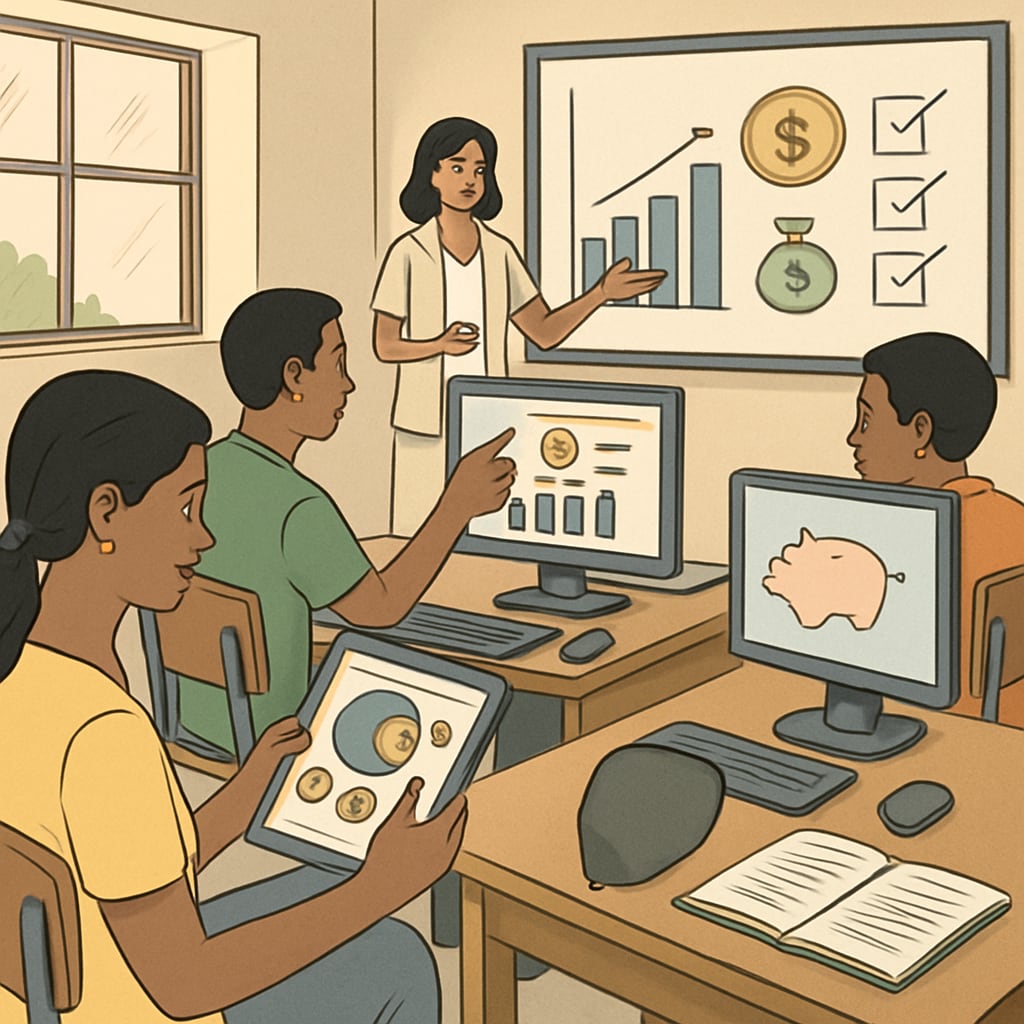In developing countries such as Mali, the path from education to a successful financial career often presents significant challenges. The existing K12 education system plays a critical role in shaping students’ foundational understanding of financial concepts, yet it remains underdeveloped in many regions. This gap in early education frequently leads to university graduates struggling to navigate their professional journeys in the financial sector. By analyzing these challenges and proposing reforms to integrate financial literacy into the K12 curriculum, we can empower students to build a solid foundation for their future careers.
The Impact of K12 Education on Financial Careers
K12 education serves as the bedrock of knowledge, equipping students with skills they will use throughout their personal and professional lives. However, in countries like Mali, the curriculum often lacks comprehensive financial literacy programs. This absence creates a ripple effect, as students progress to higher education without understanding basic financial principles such as budgeting, investment, or risk management.
According to a Britannica article on education, early exposure to financial concepts significantly boosts long-term career readiness. For instance, students who learn about financial planning in high school are more likely to pursue careers in banking, economics, or investment. Yet, in many developing nations, financial education is either absent or treated as an optional subject, leaving students ill-prepared for the demands of the financial sector.

Challenges Facing Financial Career Aspirants
The lack of financial literacy at the K12 level manifests in several ways as students enter the professional world. In many developing countries, including Mali, young graduates face the following obstacles:
- Limited Practical Knowledge: While university courses may cover theoretical aspects of finance, there is often a disconnect between academic knowledge and real-world application.
- Restricted Access to Resources: Many students lack access to mentorship, internships, or professional workshops that could enhance their understanding of the financial industry.
- Economic Barriers: High unemployment rates and limited job opportunities in the financial sector further compound these difficulties.
These issues underscore the need for a systemic overhaul of the education system, beginning with the K12 stage, to better prepare students for financial careers.
Reforming K12 Education for Financial Literacy
To address these challenges, reforms in the K12 education system must prioritize financial literacy as a core component of the curriculum. Here are some actionable strategies:
- Integrate Financial Literacy Early: Subjects like budgeting, saving, and investing should be introduced as early as middle school to build foundational knowledge.
- Leverage Technology: Digital tools and apps can make financial education more accessible and engaging for students in remote or underprivileged areas.
- Collaborate with Professionals: Partnerships between schools and industry experts can bridge the gap between academic learning and practical application.
For example, organizations such as the OECD’s financial literacy initiatives provide valuable frameworks for integrating these concepts into school curricula worldwide. By adopting similar models, developing countries can enhance the career readiness of their students.

Conclusion: Bridging the Gap for Future Financial Leaders
In conclusion, the journey from classroom to career in developing countries like Mali is fraught with challenges, particularly in the financial sector. The underdeveloped K12 education system often fails to provide students with the necessary skills and knowledge to succeed professionally. However, by prioritizing financial literacy at the early education stage, leveraging technological tools, and fostering collaborations with industry professionals, we can empower the next generation of financial leaders. This reform is not just an investment in individual careers but a step toward economic development and global progress.
As the global economy becomes increasingly interconnected, equipping students with robust financial skills is essential for their success in the professional world. By addressing these systemic issues, we can ensure that students in developing countries are no longer disadvantaged but instead poised to thrive in the competitive landscape of financial careers.


